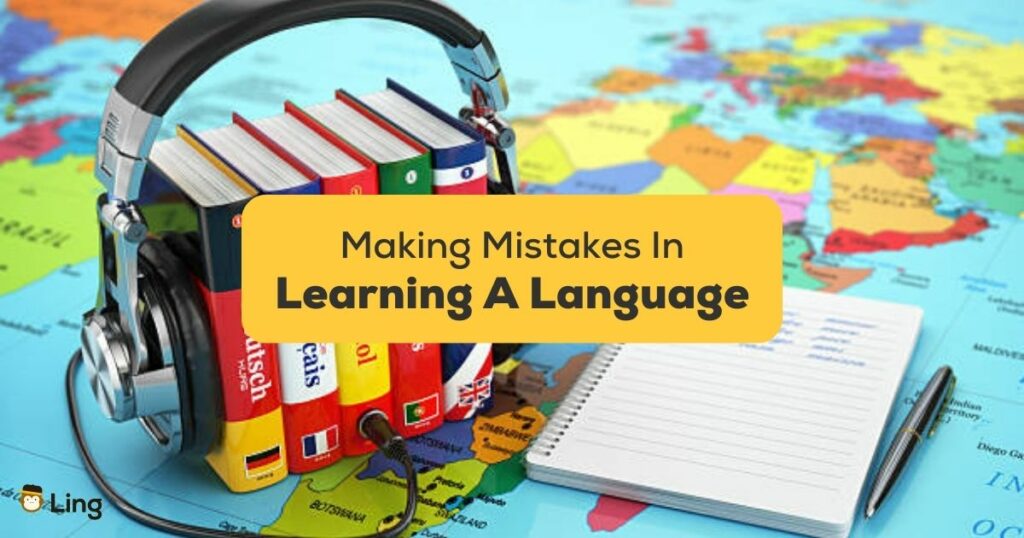Are you frustrated with the lack of progress in your language-learning journey? Fear not, for overcoming challenges is an integral part of achieving your linguistic goals! If you find yourself hitting roadblocks and struggling to move forward, it might be time to examine the blindspots that could be hindering your progress. Making mistakes in learning a language is natural, but recognizing them is the first step towards improvement. Let us guide you on this path of discovery, helping you identify common signs of errors in your language learning process and providing valuable insights on how to avoid them.
Why Bother Learning A Language?
Learning a new language is like setting out on an exciting trip to explore fascinating new worlds of great chances, diverse cultures, and beautiful experiences. But it has its difficulties, just like every expedition. Despite those difficulties, it’s imperative that you continue learning a language because it offers a lot of benefits, including the following:
- Cultural Insight: Discover the traditions, customs, and values embedded within languages, fostering empathy for various lifestyles.
- Effective Communication: Overcome barriers and engage meaningfully with people from all walks of life.
- Career Opportunities: In our global era, bilingualism is a sought-after asset, opening doors to international roles.
- Mental Fitness: Boost memory, creativity, and problem-solving while staving off cognitive decline.
- Personal Growth: Embarking on the language-learning journey hones patience, adaptability, and resilience.
- Travel Immersion: Speak like a local, enriching your travel experiences and navigating foreign lands effortlessly.
- Expanded Knowledge: Dive into literature, media, and insights otherwise inaccessible in your mother tongue.
- Bridge Building: Play your part in creating a unified, understanding world.
- Linguistic Appreciation: Marvel at the unique beauty and complexity each language holds.
- Elevated Confidence: Conquering a new tongue empowers you to embrace challenges and step out of your comfort zone.
In essence, learning a language is transformative. It doesn’t just teach words, but offers a deeper, more enriched perspective on the world and our place within it. So, why learn a language? For the profound journey and the broader, more inclusive view of life it unveils.

Common Signs Of Making Mistakes In Learning A Language
1. You Have A Fear Of Making Mistakes
Think about your first time learning to ride a bike. You might be worried about falling. Languages are the same way; some children fret over using the wrong words or seeming silly. But what’s this? It’s acceptable to make errors. We learn in this manner.
2. You Don’t Practice Consistently
It’s important to practice speaking, writing, and listening regularly when learning a language, but some language learners don’t set aside enough time for these activities. Like learning a new dance choreography, practising your mouth to produce new sounds is critical. So the more you do it, the more you can improve! If you do commit to practising, your goals in language learning may be slow and discourage you further.
3. You Overlook Pronunciation
For efficient communication, proper pronunciation is essential. Lack of experience with pronunciation might result in errors and make communicating more challenging. The simplest method for enhancing your pronunciation is to listen to actual speech samples, which can be through watching a movie in its original language or listening to podcasts about a subject that interests you. Then try to record yourself speaking as soon as you have had some practice shadowing. You might repeat a little phrase you have heard.
4. You Rely Solely On Textbooks
Yes, textbooks can teach you some grammar points and vocabulary, but they can’t convey the authentic charm of language. More than simply reading is required to master a language; you must also talk, listen, and comprehend others. Even the accents, distinctive phrases, and regional dialects will be taught to you. So don’t limit yourself to reading books!
Mix it up with fun things like actual objects, native speaker conversations, and engaging in other interactive activities. The more you experiment with the language, the more proficient you’ll be! You’ll soon be able to speak with anyone anywhere and comprehend their fantastic culture!
5. You Do Not Immerse In the Culture
Because language and culture cannot be separated, you can lose a comprehensive comprehension of the language’s nuances, idioms, and context when you separate language learning from cultural understanding. The subtle nuances of the language, like idiomatic expressions, social norms, and gestures, vital in efficient communication, can only be understood when embracing the culture. A more profound connection with the language and its speakers can be made by learning about the culture because it promotes empathy and an appreciation for variety.

Effective Language Learning Strategies
Want to truly boost your skills in your target language? Take note of these strategies!
- Language Exchange Programs -You can practice your language skills with native speakers and experience real-world conversations by participating in language exchange programs.
- Language Learning Apps -The interactive games, quizzes, and lessons provided by language learning applications make learning enjoyable and exciting.
- Watching Movies and Listening to Music -Listening skills are enhanced, and learners are exposed to colloquial expressions when immersed in music and movies in the target language.
- Joining Language Meetups -To practice speaking and gain confidence, joining language meetups offers an engaging environment.
- Hiring a Language Tutor – A language tutor’s criticism and guidance can speed learning.
Wrap Up
As we learned in this post, accepting all of your mistakes is part of the language-learning process. Avoid letting your fear of making errors prevent you from exploring the intriguing field of multilingualism. Remember that making mistakes is a regular aspect of learning and should be welcomed as stepping stones toward progress. Every mistake you make is a chance to improve since it demonstrates how engaged you are with the language and how open you are to new ideas.
Also, learning a new language is the benefit of opening doors to other cultures, improving communication, and expanding horizons. Therefore, even though you occasionally make mistakes, don’t be afraid to study, write, practice, and voice your mind. In addition to boosting your confidence, accepting mistakes with a positive outlook will help you advance as a proficient and culturally aware language student.
Learn A Foreign Language With Ling
We hope that as you reach the end of this article, it finally motivated you to dig deeper into the language you are studying and made you interested in learning more! Ready to actually start making progress? Let the Ling app be your wings while you fly into the skies of beautiful languages!
Ling offers courses in 60+ languages, lectures written by native speakers, and practice real-time conversations. Indeed, the Ling app is the ideal starting point for you to learn a new language or advance in the one you already struggle with.
What are you waiting for? Visit the App Store or Google Play Store to download the Ling app!































































